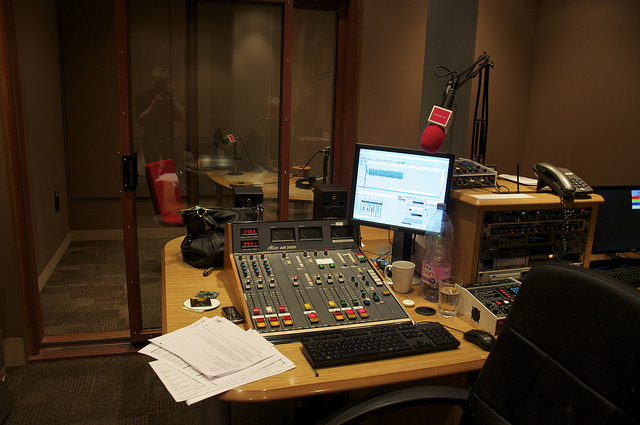
Image via Flickr by Nick J Webb
Whether you’re a vocalist or even part of a band, the next big step to taking your music to the next level is investing in a music studio. While some people rent out studios, it’s more convenient to have one right in your home. If you’re serious about your music, playing in the garage just isn’t going to cut it. If you’re ready to consider a home music studio, then you need to invest in these must-have items.
Recording Computer and Software
The computer and software you choose is as essential as the musicians and instruments for your recording studio. Although you may experience sticker shock when you start pricing the items, it’s not something you want to skimp on. Mainly, you want to buy the best computer you can afford. Although it might be tempting to spend less, you will end up spending more time and energy if your computer is slow and inefficient.
Buy a high-quality computer from the beginning, and you will save money over time by not having to replace it as soon as you would a cheaper computer. Don’t forget to invest in high-quality recording software as well. Steinberg Cubase Studio and Apple Logic Express are two top-selling recording software products that will help enhance your creativity and expand your recording options.
Noise-Canceling Headphones
Even after you’ve soundproofed your studio, everyone involved needs to hear themselves and the music clearly. Invest in noise-canceling headphones for everyone in the studio so that no outside sounds distract the musicians. Your headphones are multifunctional as well—when you’re listening and adjusting the tracks later, using Sony’s noise-canceling earbuds will help keep your focus and make sure that you can hear every aspect of the music without outside disturbances.
Microphone and Sound System
Your microphone and sound system are another area where you should allocate a big part of your budget. It’s easy to buy cheap equipment and hope for the best, but just as with your computer and the headphones, you will have to replace them sooner rather than later, and you won’t be happy with the results if you buy cheap equipment.
Spend the money on a good microphone and sound system. Eventually, you will need to buy more equipment, but to start, you only need enough microphones for the number of vocalists in the studio. If you’re starting off with just yourself, then one good microphone will suffice. Also, tailor your microphone to the need. If you’re a vocalist, make sure to buy a microphone like the Shure SM7B — tailored specifically for vocals.
Soundproofing and Door Seals
Make sure your studio is properly soundproofed and that it includes some insulation. If you are planning on having a serious studio, consider building a room within a room. If you’re just starting out and you have a limited budget, mattresses will suffice. When soundproofing a room, many people forget about sealing the doors. You can buy simple door strips from any hardware store, although if you want good quality, then consider ordering commercial door strips to ensure that you have a good seal.
Air Inlet and Outlet
When you’re sealing up an entire room, you might not realize that you’re cutting off your air supply. Having a flow of oxygen is important, for obvious reasons, but its importance goes beyond just being able to breathe. Without a constant stream of oxygen in and out, you can damage your equipment, especially if the room is humid. Moisture in rooms that are not well-ventilated can damage your electronics and equipment. Install an inlet and outlet with a fan to ensure that you have air flowing through your studio.
While it may seem overwhelming at first to build your own studio, if you have an extra room, then you really can enhance your music and broaden your available opportunities by having your own studio. Although you may need to save to invest in high-quality products, it will be rewarding and fun to create music in your very own studio. You won’t have to worry about renting one or sacrificing quality in pursuit of your art.
Todd Green is a freelance writer who specializes in technology and business. When he’s not writing you can find him on a boat, fishing pole in hand. To read more of his work visit Techiereport.com